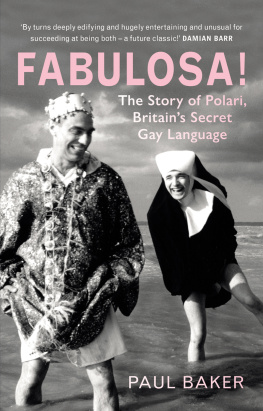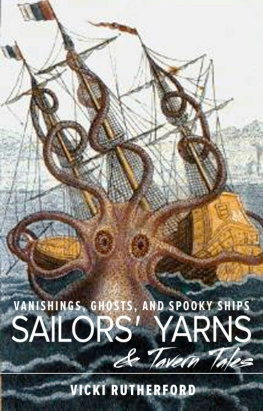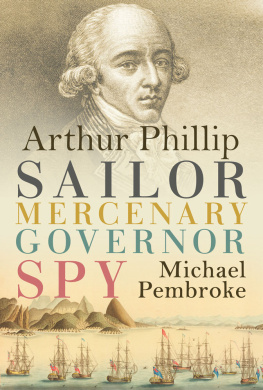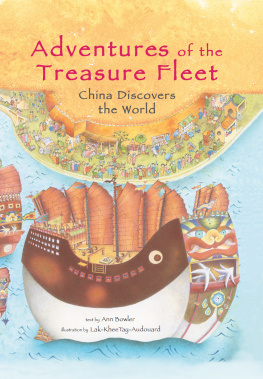Hello Sailor!
PAUL BAKER AND JO STANLEY
Hello Sailor!
THE HIDDEN HISTORY OF GAY LIFE AT SEA
First published 2003 by Pearson Education Limited
Published 2014 by Routledge
2 Park Square, Milton Park, Abingdon, Oxon OX14 4RN
711 Third Avenue, New York, NY 10017, USA
Routledge is an imprint of the Taylor & Francis Group, an informa business
Copyright 2003, Taylor & Francis.
The right of Paul Baker and Jo Stanley to be identified as Authors of this Work has been asserted by them in accordance with the Copyright, Designs and Patents Act 1988.
All rights reserved. No part of this book may be reprinted or reproduced or utilised in any form or by any electronic, mechanical, or other means, now known or hereafter invented, including photocopying and recording, or in any information storage or retrieval system, without permission in writing from the publishers.
Notices
Knowledge and best practice in this field are constantly changing. As new research and experience broaden our understanding, changes in research methods, professional practices, or medical treatment may become necessary.
Practitioners and researchers must always rely on their own experience and knowledge in evaluating and using any information, methods, compounds, or experiments described herein. In using such information or methods they should be mindful of their own safety and the safety of others, including parties for whom they have a professional responsibility.
To the fullest extent of the law, neither the Publisher nor the authors, contributors, or editors, assume any liability for any injury and/or damage to persons or property as a matter of products liability, negligence or otherwise, or from any use or operation of any methods, products, instructions, or ideas contained in the material herein.
ISBN 13: 978-0-582-77214-4 (pbk)
British Library Cataloguing in Publication Data
A CIP catalogue record for this book can be obtained from the British Library
Library of Congress Cataloging in Publication Data
A CIP catalog record for this book can be obtained from the Library of Congress
Set by Fakenham Photosetting Limited Fakenham Norfolk
In tribute to the thousands of brave gay seafaring men who persisted and sometimes had fun.
Contents
The Fortnightly Club masked ball invitation. Method Hall refers to the nickname of someones cabin. Picture courtesy of private anonymous donor.
All the nice girls love a sailor
All the nice girls love a tar
For theres something about a sailor
Well you know what sailors are
Bright and breezy, free and easy
Hes the ladies pride and joy
Falls in love with Kate and Jane
Then hes off to sea again
Ship ahoy! Ship ahoy!1
(Music Hall Song, circa 1909)
Ships may be floating hotels that take us to exotic places, but for gay seafarers in the mid-twentieth century such vessels were one of the only places where they could be open about their sexuality. When the UKs punitive laws and pathologising attitudes meant that gay men had to be closeted, on some liners they had a ball. Mainly in their teens and twenties, they sashayed their way across the worlds oceans. Thousands of excited young men dressed like Hollywood stars by night, but efficiently manned great vessels by day.
These men were not generally butch icons such as the cutely bell-bottomed sailors who could be hired as a bit of uniformed rough from the armed services. Rather, they were men of the Merchant Navy (transporting people and freight, not fighting wars as in the Royal Navy) who might wear Hawaiian shirts or the occasional evening gown. They were hotel workers stewards, waiters, pursers, but also some officers not horny-handed Able Seamen or the sweating stokers of legend. And if someone said Hello, sailor they might look around expecting that a fanciable Royal Naval sailor was being addressed, not themselves. However, for all that, they too were seafaring men.
This was a new breed: men who did hospitality work on ships almost because it was a place to be gay, rather than because they had an affinity with brine. Male company, exotic destinations and avoidance of problems at home were also a lure. But these were not people who particularly sought a life on the ocean wave; it was often just a place to be freely themselves at a time when homophobia was rife ashore.
Partying in male company below decks. Picture courtesy of private donor.
And until now their story has only been known by other people who have been to sea: their straight and gay colleagues, and passengers. So this book reveals an overlooked aspect of gay history and of maritime history. It puts maritime occupations into gay heritage. And it gives those newly-developing subjects gender at sea, and Sailor Jacks masculinity2 a whole new dimension, raising such questions as: How could gay men at sea be tolerated when women aboard were superstitiously seen as wreckers? Was Jacks girl in every port actually a young man? Do novels such as Treasure Island have to be read quite differently in respect to relationships? What was behind sexism at sea a desire for an all-male world far from shore? And was this quite what British Prime Minister Winston Churchill meant when he said that the navy succeeded because of rum, bum and baccy?
The story of these gay men is often one of fun and irreverence. Unlike the sailors of old who embarked with their ditty boxes and souwesters, these seafarers minced up gangways with record-players, sewing machines and eyeshadow to match their flip-flops, though they may have had concertinas and rope in common. Instead of disembarking with their painstakingly scrimshawed whale molar for mum, they flounced off with the latest frocks from Manhattan and porn from Paris. Their affairettes give a new angle to the usual fantasies concerning liner romances. When there were wedding bells at sea, both the bride and the groom could be crew. And these seafarers special language was not one about ships parts but about mens parts. Their undercover language Polari made gay men on ships a special community with its own covert ways of communicating.

Miss Everton too was a seafaring man seen here with a crowd mourning Everton Football Clubs disastrous performance. Picture courtesy of the Oral History Unit, Southampton City Council.
In Hello Sailor! we show what it was like to be gay at sea during a time when land meant straightness. With oral testimony from a number of men who were seafarers from the 1950s to the 1980s, this is a story about a secret fraternity, which sheds new light on that masculine institution, the Merchant Navy.
Notes
. Perhaps the phallic essence of the seafaring man figure is underlined by the entirely penetrative emphasis in the bowdlerised version of the song: All the nice girls love a candle / All the nice girls love a wick / Cos theres something about a candle / that reminds them of a prick. / Nice and greasy, slips in easy, etc.


















